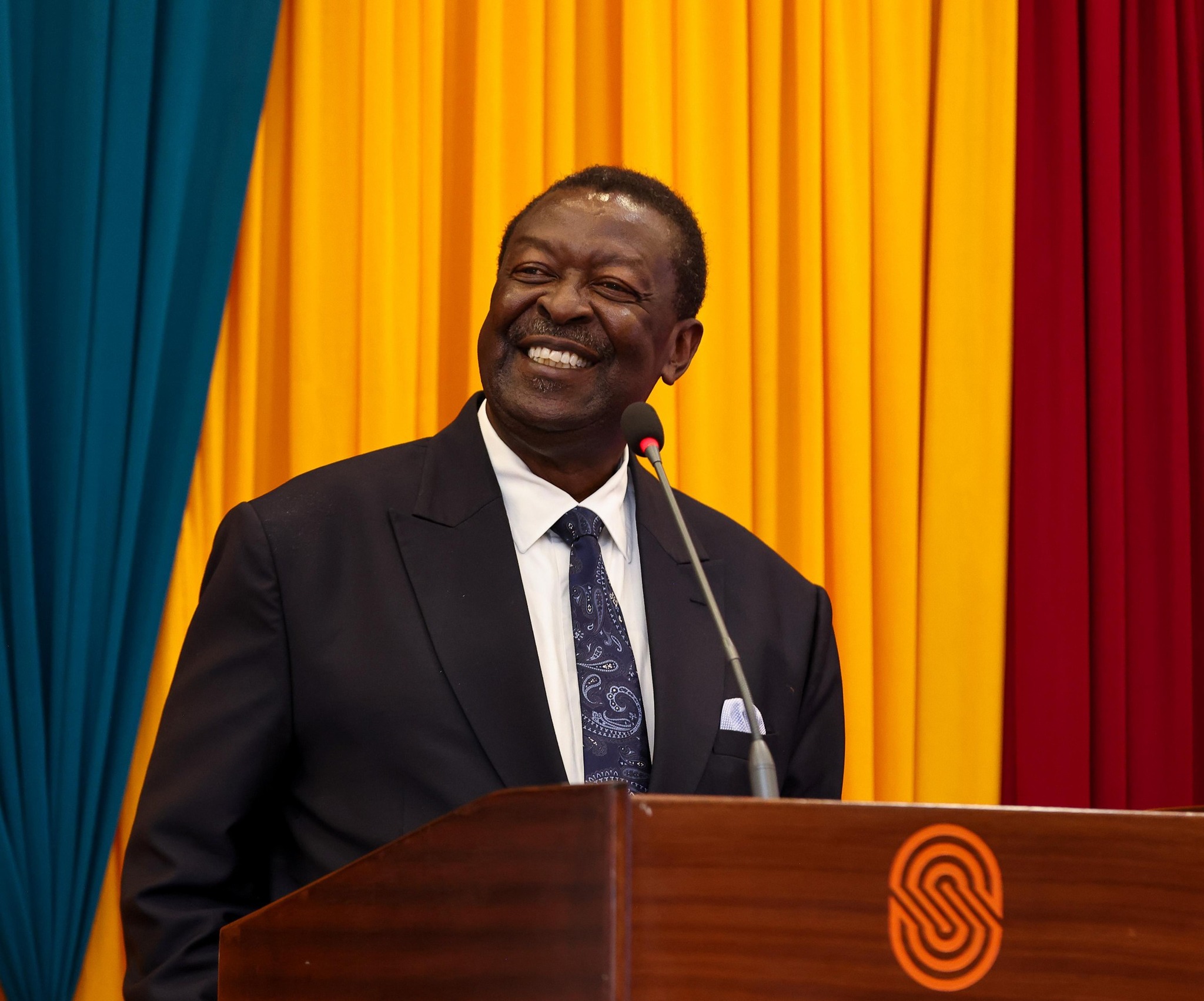 Prime Cabinet Secretary Musalia Mudavadi speaking during a fundraising dinner hosted by the A-Kili Foundation in Nairobi. Photo Courtesy
Prime Cabinet Secretary Musalia Mudavadi speaking during a fundraising dinner hosted by the A-Kili Foundation in Nairobi. Photo Courtesy
By Andrew Mbuva
Prime Cabinet Secretary Musalia Mudavadi has called for a national paradigm shift in how Kenya engages its youth, urging leaders to involve them meaningfully in decision-making processes and national development.
Speaking during a fundraising dinner hosted by the A-Kili Foundation in Nairobi, Mudavadi said young people—those aged 35 and below—constitute over 35 million of the population, accounting for nearly 75 percent of the country’s total demographic.
“This sheer number demands not only attention but robust engagement,” said Mudavadi, who also serves as the Cabinet Secretary for Foreign and Diaspora Affairs. “We must invest intellectually in the youth. That is the most sustainable tool for building Kenya’s future.”
The dinner brought together national and county leaders, civil society organisations, development partners, and private sector players committed to youth development and social innovation.
Mudavadi underscored the need for a deliberate shift in how the country approaches youth empowerment, calling for initiatives that focus on equipping young people with the knowledge, skills, and values needed to transform their lives and communities.
“Let us embrace the journey ahead with courage, compassion, and a shared commitment to the Foundation’s mission,” he said.
He challenged fellow politicians to re-evaluate how they interact with young people, criticising the top-down approach that often characterises political discourse.
“We, the politicians, are the biggest culprits. We have been talking down to young people instead of engaging them in meaningful conversations,” Mudavadi noted. “It’s time we started listening more than we speak.”
In a passionate address, the Prime Cabinet Secretary recounted historical and personal examples that showcased the capability of young leaders. He cited William Pitt, who became British Prime Minister at 24, and Jesus Christ, who had already transformed the world by age 33.
“I became a Cabinet Minister at 28 and Finance Minister at 33. I think I can exercise some bragging rights,” he said, recalling his role in liberalising Kenya’s economy—reforms that laid the foundation for services like Safaricom.
He urged Kenyans to stop portraying the youth as a burden and start viewing them as a national resource.
“Let us change the narrative. Young people are not a problem; they are the solution. They will define and build Kenya’s future,” he said.
Reflecting on his early days in public life, Mudavadi shared a story from a harambee event where a former MP from Aldai Constituency introduced the idea of the “Brain Settlement Scheme” (BSS).
“At independence, families acquired land through settlement schemes. Today, the only viable scheme for young people is BSS,” he said. “Unlike land, the brain is in unlimited supply. It can be cultivated without tax, and it offers every young person a chance to succeed through effort and initiative.”
He praised the A-Kili Foundation’s role in promoting this philosophy by empowering youth to "till their minds and move forward."
While advocating for innovation and technology, Mudavadi issued a cautionary note about the misuse of digital platforms and emerging technologies such as Artificial Intelligence.
“AI is increasingly being used to distort reality and mislead the youth. Let us not allow falsehoods and illusions to guide our young people,” he warned.
He also spoke against the glorification of violence and militarism, noting that such narratives mislead young people and jeopardize national stability.
“Civilian and constitutional governance, with all its flaws, is always superior to military regimes,” he stressed. “Our Constitution guarantees predictability through regular elections. That is the strength of democracy.”
Mudavadi warned that the collapse of public institutions poses a far greater threat to national progress than external factors.
“We must strengthen, not abandon, our institutions. Let us pursue accountability, transparency, and reform,” he urged.
In closing, he lauded the work of the A-Kili Foundation, which since 2011 has impacted over 5,000 young people through mentorship, digital training, entrepreneurship, and leadership development.
He paid special tribute to the Foundation’s founder, Dr. Hosea Kili, and his wife, Mama Secilia, for their unwavering dedication to philanthropy.
“A heartfelt thank you to Dr. Kili and everyone who contributed to this cause—not just through financial pledges, but through commitment to real and lasting change,” said Mudavadi.
The A-Kili Foundation continues to expand its reach, with a vision to build a generation of conscious, capable, and future-ready citizens.